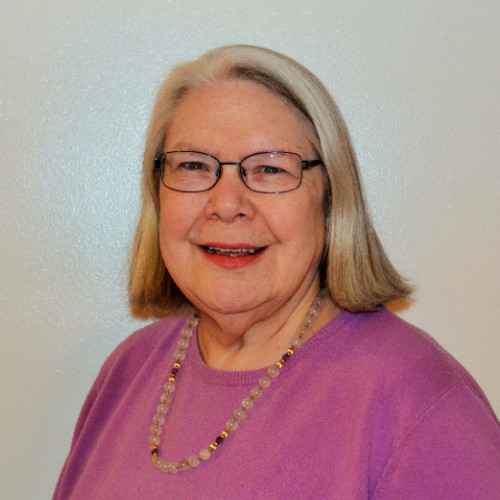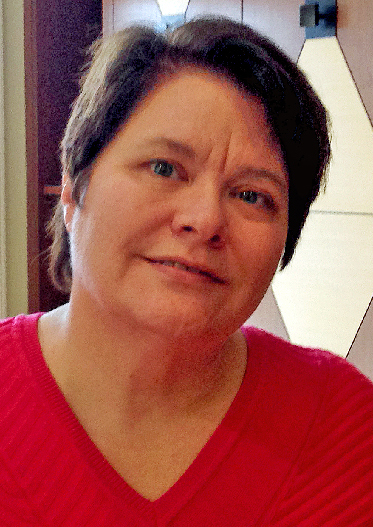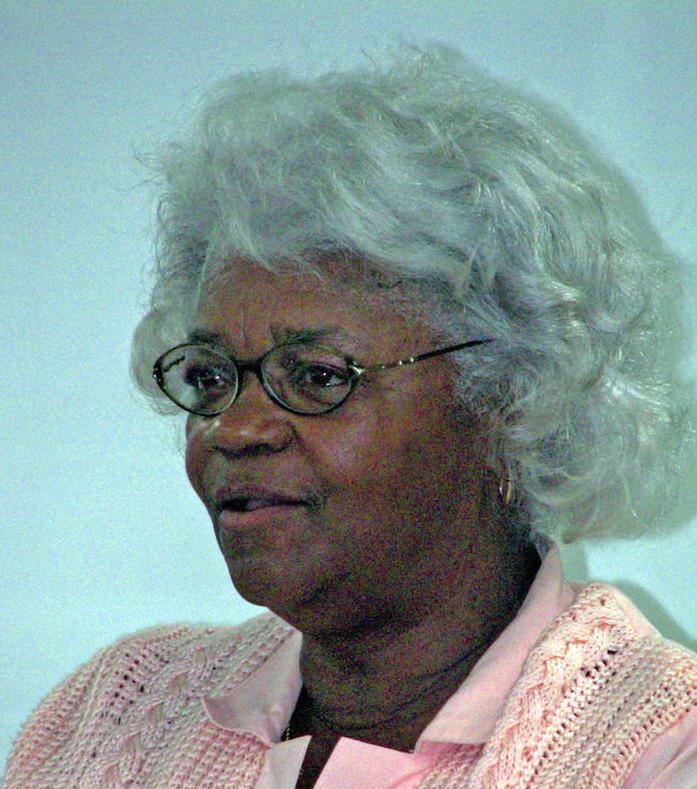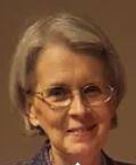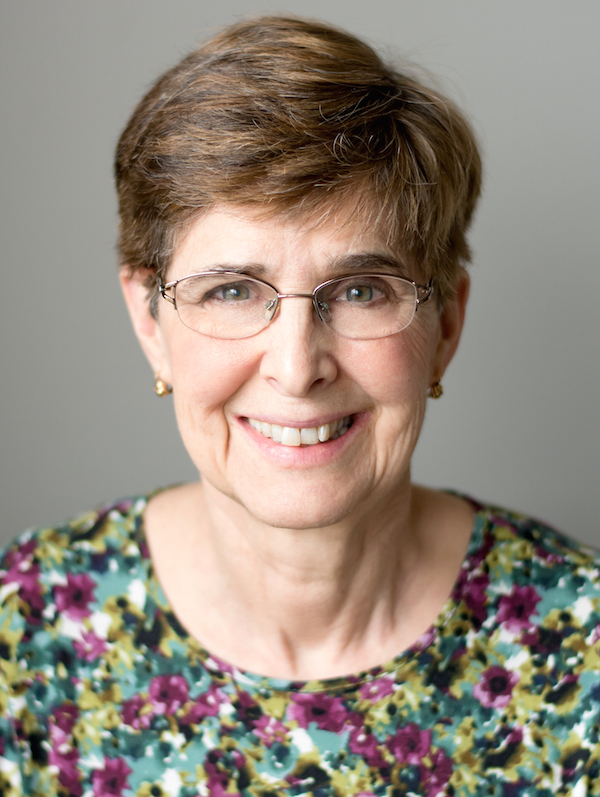| Israel Blackburn: A Journey from Enslaved Person to Founder of Downers Grove | |
| Maureen Brady | |
| Analyzing Your Research | |
British Resources at Find My Past | |
Chicago Area Research | |
Family History Research in Illinois & Wisconsin | |
Family History Research in the British Isles | |
Family History Research in the Dairy State | |
FamilySearch® -- The Digital Age | |
Fill in Your Family Tree -- Family History Research for Beginners | |
*NEW* | |
*NEW* | |
*NEW* | |
Optimizing Your Searches on the Internet -- It's More than Ancestry® and FamilySearch® | |
Quaker Family History Research | |
The Québécois -- French-Canadian Research | |
Rules I Learned Along The Way: A Case Study | |
Scottish Family History Research: Beyond the Basics | |
Scottish Family History Research: Historical and Geographical Background | |
Scottish Family History Research: In Your Own Backyard | |
Spotlight on FamilySearch® -- Family Tree Memories | |
Spotlight on FamilySearch® -- The Digital Records | |
Spotlight on FamilySearch® -- The Family Tree | |
Spotlight on FamilySearch® -- The Research Wiki | |
Swedish Family History Research | |
Tapping the Power of FamilySearch® | |
The U. S. Census: What It Can Tell You About Your Family | |
What's New in FamilySearch® | |
You, Too, Can Read Old Handwriting |
| | |
| Getting Started: Approaching the Past | |
| | |
| Un-Puzzling Birthing History | |
| Using Non-Traditional Sources to Identify the Slave Holder and Reconnect Slave Era Families | |
| Seven Proven Strategies for Identifying Slave Ownership and Reconstructing Slave Era Families | |
| Creating and Sustaining Your Family Newsletter | |
| Loose Women, Policy Queens and Black Ewes | |
| Colored Confederate Pension Applications | |
| Using the Records of the Freedmen’s Bureau in the Reconstruction and Enhancement of African American Family History | |
| | |
| Researching the Digital Library on American Slavery | |
| Even Gangsters had to Register | |
| Putting Some Clothes on Charles | |
| USCT Pension Files | |
| Slave Tags | |
| Going Beyond the Population Count | |
| *NEW* | |
| | You Can Pick Your Relatives |
| | The Musical CHICAGO and All That Genealogical Jazz |
| Liven Up Your Family History with Images | |
| Ed Rosenthal | |
| | What’s New in Technology |
| | Genetic Genealogy: What it is and Why it Matters to Local Law Enforcement |
| John Stryker | |
| | Handheld Apps for Family Research |
| Eric Vavra | |
| Presentations | AI & Genealogy: The Evolving Role of Artificial Intelligence in Genealogy |
| Relationship Finder Tools: Find Connections Using Free Collaborative Family Trees | |
| Safeguarding Your Family History for Now and the Future: Considerations and Techniques for Backing Up Your Research | |
| Why WikiTree? Global Collaboration, Powerful Tools, Completely Free | |
| Workshops | AI & Genealogy: Exploring Ways to Use Artificial Intelligence As Your Genealogy Assistant |
| | Preparing to Publish Your Book: Tips and Tricks for the Writer |
Detailed descriptions of selected programs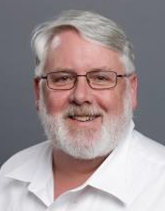 Marty Acks is an amateur genealogist and historian. He has been researching his family history since 1999 after having caught the bug from his mom and dad. He volunteers at WikiTree where he contributes to the global family tree, leads surname studies for the Porterfield and Lenover surnames, contributes to the global tree, and acts as a WikiTree Ambassador. Marty is a board member of CAGGNI and the Downers Grove Historical Society. An Introduction to WikiTree, the Free Global Family Tree WikiTree is a free community of genealogists dedicated to growing an accurate single family tree using DNA and traditional genealogical sources. In this program, you will learn the key features of WikiTree, be shown how you can easily get started on the site and learn numerous tips and techniques to get the most out of your time on WikiTree. New 2022! Marty's video, "An Introduction to WikiTree, a Personal Perspective" An Introduction to One-Name Studies Family historians often start by researching their ancestors and cousins. A one-name study, by contrast, focuses on individuals with the same (or similar) surname, even if they are not related to each other. These projects can span many countries, continents, and centuries. In this presentation, the speaker will provide an overview of one-name studies methodology and terminology, relying on the approach of the Guild of One-Name Studies (GOONS). Family Tree DNA's Y-DNA projects and WikiTree surname projects will also be studied. The presentation will conclude with a review of his own case studies, including one that broken open a decades old brick wall, and examples of other unique one names projects. Israel Blackburn: A Journey from Enslaved Person to Founder of Downers
Grove Israel Blackburn was born into slavery in 1818 in Kentucky. By 1865, he was serving in the U.S. Colored Infantry in Kentucky. Blackburn moved his family north to Downers Grove, a suburb of Chicago, shortly after the war. He became a respected member of the community and within a few years, in 1873, was one of the 38 founding signers of the Incorporation Papers for the new Village of Downers Grove. In this presentation, you learn the unique story of Israel’s life. This story will be told by following the large amount of archival material found from both traditional and unexpected sources. _______________________________________________________________________
Maureen Brady, a former school librarian and computer educator, has forty years experience with family history research. She has traced her Scottish roots back to the end of the 17th century and beyond, and has also pursued Chicago and the Midwest, the trans-Allegheny U.S., Quebec, Irish and Swedish research. Maureen has made numerous presentations to genealogical societies, libraries, conferences and workshops throughout the U. S., as well as presenting for the Brigham Young University Library family history webinar series. She is a member of the Genealogical Speakers Guild, as well as a life member of the Aberdeen and Northeast Scotland Family History Society and the Ohio, Chicago and McHenry County (Illinois) Genealogical Societies. She is also active in the Kentucky, Middle Tennessee and Lake County (Illinois) Genealogical Societies, and the British Interest Group of Wisconsin & Illinois , and the Chicago Scots Genealogical Group. The gates to many research “brick walls” may often be opened by a thorough analysis of the records. Using examples of typical research documents, this presentation will demonstrate how clues for further research are often found “between the lines”. The Family History Research
“Circle”: The Internet, FamilySearch
Centers, Social Networks, Libraries, and On-Site Research Today’s family history researcher has access to a wide variety of resources, including the Internet, libraries, and local repositories – the Family History Research “Circle”. Using actual research examples, Maureen Brady will demonstrate how a successful research strategy can be developed by building on the strengths of each part of the “circle”. The First Frontiersmen: The Scots-Irish Some refer to them as Ulster Scots, others as Scots-Irish. Whatever their name, they are the U. S. descendants of those who were “planted” in the Ulster province of Ireland in the 17th century and subsequently immigrated to the American frontier. Their famous sons include Daniel Boone and Andrew Jackson, and we see their cultural influence in square dancing and country music. This presentation will review the history of the Scots-Irish and suggest resources for researching their family histories. Following the British Diaspora From the 17th century, the people of the British Isles have looked for opportunities throughout the expanding British Empire and the Commonwealth. This presentation will provide a brief overview of the major movements beyond the British Isles, suggest some key research websites and trace one family's movements from Scotland to the far points of the compass. Irish Family History: The Essentials Learn to be successful with your Irish family history research. This presentation will discuss how Ireland’s history affects the records and their availability, help for deciphering the layers of Ireland’s land divisions and place names and the best websites for locating the records. The
Jones Family: A Chicago Irish Story Chicago area family history research can be a challenge due to historical events and the physical size of the area and population. Using a case study of a Chicago Irish family that fled the Great Famine and settled in pre-Fire Chicago, this presentation will demonstrate strategies for tackling the challenges of Chicago area research and review record availability, repositories and online resources. "Little
Egypt": Southern Illinois Research After the American Revolution, the counties of southern Illinois were opened to settlement inland from the Ohio and Mississippi Rivers. Those early settlers very often migrated from across the Appalachian range and along the Ohio River, most often moving from Virginia, Tennesse, Kentucky and southern Indiana. They were followed by miners from the British Isles seeking the better opportunties this newly opened land offered. This presentation will look at the settlement of "Little Egypt" and discuss resources and strategies for successful research in this region of Illinois. The
Old Northwest: Researching the Great
Lakes States The Territory Northwest of the Ohio River was created in 1787 and lasted until 1800. From it, five states were formed: Ohio, Indiana, Illinois, Michigan and Wisconsin. This presentation will review the history of the "Old Northwest" and suggest research strategies for the territorial period, as well as for each of the subsequent states. The spelling of individual and family names was often “in the ear of the listener” and was not standardized until well into the 20th century. This presentation will look at the history of names, various naming patterns and research strategies for locating the “right” spelling of a name in various types of records. Our neighbor to the north was often the “gateway” for U. S. bound immigrants. Some families may have lived in Canada for a generation or two before continuing on to the U. S. This presentation will include a brief overview of Canadian history and immigration, and a review of the major record sources for Canada and the best websites to locate those records. Since the founding of Penn’s Woods (Pennsylvania), the American Colonies and the U. S. have attracted those who sought religious freedom. This presentation presents strategies for researching religious records in the U. S., identifies the major repositories and archives and reviews various websites which provide access to religious records. Tennessee Family History Research Tennessee was one of the first states established after the American Revolution, and it provides a rich body of historical records. This presentation will offer a brief overview of Tennessee history and how that affects the availability of the records, online resources for Tennessee research and an overview of repositories and archives. The U. S. Census: What It Can Tell You About Your Family The United States Federal government has taken a census of its population every ten years since 1790. These census records are a “goldmine” of information about our families and can provide vital clues to our family history research. Learn what records were produced, which still exist and how to access them. This presentation will include examples of census records, search strategies for locating them and analysis techniques for “gleaning” the most from these records. Using Newspapers to Fill in the Gaps in a Family Story Local newspapers provided our ancestors with “all the news that’s fit to print”. Finding those nuggets of information can help break down brick walls or add color to our ancestors’ lives. This presentation will review locating websites with digitized historical newspapers, as well as search strategies for finding your family’s stories. _______________________________________________________________________ Michelle Bray Wilson has been active in the genealogy community for more than a dozen years. She speaks throughout the Midwest, most frequently on genetic genealogy, French Canada, ancient ancestry, and creating family history books. Michelle’s lectured for Illinois State Genealogy Society, Franco Fete in Minneapolis, for UW’s Early Music Festival in Madison, for MSPCE (Midwest Security and Police Conference), MENSA, and at numerous area conferences, genealogy groups and libraries, including being a featured speaker for Chicago Public Library, DuPage County and Lake County societies. She is a former president of CAGGNI, the Computer Assisted Genealogy Group of Northern Illinois, and served many years as Registrar at a local DAR chapter. She has led or co-led CAGGNI's DNA Special Interest Group since founding it in 2015. An engineer by training, Michelle consults for the medical device manufacturing industry, and has recently begun accepting a limited number of clients in the genealogy space. 2025 Program Schedule
Selected Programs by Michelle Bray Wilson Researching My Slovaks *NEW* Michelle has extensively researched her three immigrant ancestors from Slovakia, who came at the end of the 19th century to settle on the Bohemian Flats along on the Mississippi River in Minneapolis. Along the way Michelle has had several serendipitous finds and collected many, many stories that she will relate. This talk will also explore the available records, research sites and societies that will prove helpful to anyone researching Czechs, Slovaks, Hungarians and nearby populations, and many of the techniques for getting back to the ancestral village apply to anyone with old-world ancestors who came to the U.S. Insights from MtDNA Case Studies *NEW* Mitochondrial work is often treated as the downtrodden stepchild of DNA. Yet due to its extraordinary reach, MtDNA can yield insights not possible with other technologies. We will briefly explore MtDNA organization and inheritance, and then dive into four Mt case studies: one leading to Fort de Chartres, the first European settlement in Illinois, another focused on a Metis family from Montana, a third showing how MtDNA can assist autosomal analysis, and a fourth exploring a woman purported to be from the Ontario Metis of Drummond Island. I Did a DNA Test, Now What? - Learn how to put DNA to work for you to confirm and extend your lineage and breakdown longstanding brick walls in your family history research. Everything You Ever Wanted to Know about Genetic Genealogy Just how is it possible that we share more than 98% of our DNA with the chimps but only 12.5% with our first cousins? How do genetic genealogists solve cases that have stumped law enforcement for years? How was that "King in the Car Park" actually identified? Learn the answers to these questions and many more at this delightful and informative session, ideal for all types of civic groups, not just genealogists. Tracing Genealogy Through the French and Indian Wars *NEW* The French and Indian Wars (1688-1783), known as the Intercolonial Wars in Quebec, were a series of conflicts across what is today the US/Canadian border involving British, French and Dutch colonials and Native Americans. Of particular interest to genealogists are the thousands of persons taken captive from New England frontier villages and force marched or carried to Canada. We will tell the story of the four wars making up these conflicts and how to track the many children and their parents who were caught up as captives, mainly using the Deerfield raid of 1704 as an example. Bio-Parents for Peg and Donna: An Autosomal DNA Case Study An interactive, real-life autosomal case study to identify the bio-parents of two related adoptees. Learn how the processes of separating maternal and paternal relatives, marshalling support to gain access to locked trees, gathering necessary genealogical records, working up pedigrees, and narrowing down candidates actually works in practice. Every unknown parentage case involves two separate searches, one for each parent. While the bio-mother in this case was identified routinely, the bio-father was obscured behind an incorrectly attached (wrong) pedigree, mis-attributed parentage of a grandfather, and descendants resulting from a son and his mother who (re-)married siblings, resulting in higher than usual autosomal sharing among their descendants. Search angel work can be quite an adventure, and anyone serious about genetic genealogy is encouraged to become familiar with the methods required. Solid knowledge of the techniques involved provides firm footing for those wishing to use related methods to extend lineages back in time with the help of DNA. Following development at CAGGNI's DNA special interest group, this lecture was featured at Illinois State Genealogical Society's annual conference. The DNA segments we inherit from our common ancestors are what make DNA match lists possible. Studying these segments gives us a much more detailed and nuanced window into our inheritance and can even help us begin to re-construct the genomes of long-deceased ancestors. Learn how to use the chromosome browsers to advance your work, and how to think about and organize your own segments using tools such as DNA Painter. This lecture was first presented September 2022 at CAGGNI's GeneaQuest Conference. Structure of DNA and the Commercially Available Kits Learn the organization of DNA as applicable to the genealogist, how it
varies from person to person, and what the various types of tests actually
examine and report on. We’ll cover everything from the old-style paternity and
“CODIS” tests, to the Y-DNA STR and SNP tests (and how these differ from
haplogroup reporting), mt-DNA tracing back female lines, and the popular
autosomal tests offered at the “big four” Ancestry.com, 23andMe, MyHeritage and
FamilyTreeDNA. Along the way we’ll discuss Best
Practices (part 1) including what tests which company to choose for which
candidate testees, what to expect when your results arrive, and a couple
third-party tools where you can do even more. Combine with DNA Inheritance lecture below to create a half-day workshop. DNA Inheritance, Our Matchlists and More Best Practices Inheritance results in only tiny changes to the Y-DNA men get from their fathers and the mt-DNA we all get from our mothers. But the inheritance process makes a scramble of our autosomal DNA. Understanding inheritance is key to making sense of our matchlists, and how our matchlists are the key to both unlocking unknown parentage and to pushing back our ancestral lines. We’ll use actual case studies and explore some third-party tools to apply this knowledge for cases such as unknown parentage and pushing back brick-walled lines to the next generation. In Best Practices (part 2) we’ll explore cases where matches don’t post trees and show how to get the most out of the hints in Ancestry’s ThruLines and MyHeritage’s Theory of Relativity. We're All Related! Searching for our Most Recent Common Ancestor *NEW* Are you descended from Charlemagne? The results may surprise you! This captivating talk explores research into the relatedness of all humans. We will discuss mitochondrial Eve (including a simulation), Y-Adam, and the Most Recent Common Ancestor and the Identical Ancestors Point. We will examine the groundbreaking modeling by Rohde, Olson and Chang done in 2004, and investigate how the 2013 DNA studies on Europeans by Ralph and Coop lines up with the earlier simulation work. DNAPainter.com offers a host of tools for analyzing your DNA and charting your segment analysis. We will study segment inheritance to help organize and verify segments. We will demonstrate some of the most commonly used free tools such as the WATO "What are the Odds" tool and the Shared CM tool, and then dive into the mechanics of uploading your identified shared segments from FTDNA, MyHeritage and 23andMe into a Chromosome Map. DNAPainter regularly adds new tools, and we will explore a couple of those as well.
Curious about DNA? Happily, DNA for the genealogist is straightforward to understand. We’ll break down the SNPs from the STRs, the haplogroups from the haplotypes, and learn how these DNA patterns are used to prove inheritance and determine deep ancestry. Learn the secrets of DNA and put this powerful complement to paper-trail research in your tool kit. Searching for French-Canadians The French-Canadian record is extraordinarily complete and well-indexed. If you have any French-Canadian ancestors, you are in luck! Learn the tricks that will have you uncovering vast swaths of your pedigree in the space of a single weekend. The history of the French-Canadians during the Nouvelle France period ending in 1760 provides additional context to this engaging presentation. Variations on this program were presented at the Madison Early Music Festival, Franco-Fete in Minneapolis, Lake County Genealogical Society, and Winnebago & Boone Counties Genealogical Society. Creating a Coffee-Table Style Family History Book Michelle has created three print-on-demand family history books. The books are in full color, and chock full of photos, documents, newspaper clips, genealogy charts and other family artifacts. Learn how to put together a beautifully formatted book, how to print copies at a very reasonable price, and how to publish and make your book available to others. First presented to the A.B. Cook Chapter, DAR, in 2018. Building Northern Illinois: William McConnell's Montelona Farm The life of William McConnell (1810-1887) of Richmond, McHenry County's most prominent early settler. We'll touch on how we researched and wrote a book detailing his life, homesteads (still extant), and family history. Presented with co-author Rommy Lopat. _______________________________________________________________________ 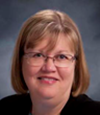 Now ZOOM or web-enabled! All programs are 1 to 1 ½ hours long and geared to the beginning and intermediate researcher. When in person, an internet connection (preferably wireless) is required along with a projector. Caron brings her own laptop or uses yours. Handouts are available for each program. Current program offerings: Comparing the Genealogy Big Four:
Ancestry, FamilySearch, FindMyPast, and MyHeritage How I Use DNA In My Genealogy Research In this presentation, I talk about “why” and “how” of DNA testing in genealogy research. Using case studies and examples, I explain how I have incorporated DNA testing into my research. Disclaimer: This is NOT a primer on the science of DNA, although some basic information is included. The audience does not have be knowledgeable about DNA testing to learn from this presentation. Looking For European Roots *NEW* If you are ready to "cross the pond" in your research, this presentation will provide ideas of where to find records for European records. Includes the well-known sites like FamilySearch and Find My Past, and also lesser known sites. Newspapers as Genealogical Resource *NEW* Travels with My Sister: Genealogical Journeys This presentation will look at the Ancestry.com site, including the Ancestry Trees, and review what is has to offer beginners as well as more advanced genealogy researchers. It will also discuss what is available through the free site and the paid subscription. Whether you are just starting out and want to host a tree at Ancestry, or have been researching for years but want more information on-line, this is the session for you. This seminar is an overview of the free FamilySearch.org web site to see what is has to offer genealogy researchers. Will include a review of the research opportunities as well as the newer areas for sharing family trees and pictures. We will also look at the genealogy programs that have been certified to share/interact with FamilySearch. Genealogy Basics for Beginners Target audience is folks interested in learning more about genealogy or just getting started. Covers information needed to get started, basic forms and organization tips, overview of top web sites and other resources used by genealogists. What's New on the Internet for Genealogists? There are new genealogy sites on the Internet every day. This fast-paced presentation is a review of popular, new, little known, and perhaps unusual genealogy resources on the internet to help you in your research. Research Your Family History Using the Internet Ready to start your genealogy research on-line but do not know where to go except Ancestry.com? Caron Primas Brennan will show you the basics as well as some other little known, and perhaps unusual genealogy resources and internet sites to help you in your research. Where did I Put Great-Grandpa? Organizing for Genealogists Organizing your genealogy information so that you can find what you want when you want it can be a daunting task. Get tips on how to keep records in digital and print-based formats. A more in-depth tour focusing on www.Fold3.com. We review of available documents and resources, many military and governmental, digitized from the National Archives, Library of Congress, and other institutions, not previously available on-line. Also includes a tour of the tools available on the site and how to use resources found on the site. Uff Da! Researching My Norwegian Roots Caron will share what she has learned through researching her own elusive Norwegian great-grandparents and discovering cousins in Scandinavia. She will discuss things to know, lessons learned, research locations and guides, and other helpful hints. ______________________________________________________________________ 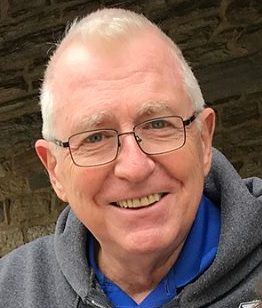 David Fleer is a retired management consultant in software quality and testing. He has been researching his ancestors, on and off, since 2001. During his last trip to Germany in 2015, he was introduced to the Archion project, to which he has become a regular subscriber. Finding Your German Ancestors on Archion.de Archion.de is the product of the Evangelische Kirche Deutschland (EKD) and 11 regional church organizations. Its objective is to preserve the church books of the entire German Evangelical Church. This presentation describes how and when to use Archion and the challenges that it presents the researcher. _______________________________________________________________________
Getting Started: Approaching the Past A workshop for beginning genealogy and family history study. Getting Around Burned Counties: Methods and Strategies Like a fireman approaches a burning building. This workshop presents techniques to resolve issues of “the burned county syndrome.” Using 19th century records to verify birthing – a case study. Using Non-Traditional Sources to Identify the Slave Holder and Reconnect Slave Era Families Seven Proven Strategies for Identifying Slave Ownership and Reconstructing Slave Era Families Creating and Sustaining Your Family Newsletter A lecture designed to address implementation strategies in developing a family newsletter. Loose Women, Policy Queens and Black Ewes A lecture to discover the many types and locations of records of women who lived on the “other side of the law.” Colored Confederate Pension Applications Valuable economic, social and genealogical primary source information Using the Records of the Freedmen’s Bureau in the Reconstruction and Enhancement of African American Family History Heritage Book: Telling Your Story. Methods and strategies in the development of a heritage book. A project for genealogy societies and family lineage groups. Researching the Digital Library on American Slavery Locating pre-emancipation documentation of individuals and community life. Even Gangsters had to Register WWI draft registration cards and the companion selective service records produced. Putting Some Clothes on Charles Using census supplemental schedules to explore and expand genealogical and social content of family history. A bounty of pre- and post-emancipation era family information. Governmental licensing, labeling and marketing of human souls. Going Beyond the Population Count An exploration of supplemental census schedules for their genealogical and social content. _______________________________________________________________________ Mary Hoyer is a long-time member and former board member of CAGGNI. She currently leads CAGGNI's Colonial America SIG. The Indian Slave Trade, Bacon's Rebellion, and Its Role in the Expansion of the Transatlantic Slave Trade When a prominent genealogist said the Indian slave trade did not happen, Mary felt compelled to find primary sources documenting its role in Bacon's Rebellion of 1676 and how it laid the foundation for the expansion of the transatlantic slave trade. Come and find out how an almost erased history can be found and where to look. Mary will share the journey of peeling back the layers with an extensive syllabus of sources, repositories, and scholars, as well as the process that uncovered this untold story. _______________________________________________________________________
New Language? Deciphering Genealogical Documents (including Old German Script) (New!) Don’t speak the language? This presentation will give you many tips and tricks on deciphering documents in most European languages and includes ideas that help in reading that old German script. Includes hints to both transcribe and translate your documents with many helpful websites and resources. Publishing Your Genealogy Using Windows (New!) Publishing your family’s history? Written a rough draft? Considering self-publishing? What’s next? Time to prepare for publishing. Learn about templates, layouts, ideas to add interest to your manuscript, inserting family photos, three ways to source, indexing, and creating a beautiful cover. Details on editing your manuscript and where to find help. Five steps will elevate your original manuscript to be publish-ready. Complete the steps and you will be thrilled with the results. Crossing the pond is easier than you think. We’ll review the history of immigrant travel into the U.S. and how to find genealogical records in most European countries. Includes a list of books and over 70 American and European websites for genealogical research. This presentation covers five areas of overseas genealogy – emigration, voyage details, immigration, naturalization and genealogical websites, both American and European. Central Europe is Easy – Merci Napoleon! **Updated** Explores websites both European and American to locate family in the countries where Napoleon ruled (France, Belgium, Luxembourg, Netherlands, Northern Italy, Germany and surrounding areas). Find church, census, military, maps and civil records. Links to over 40 websites, both U.S. and European and how to use them. (Recently updated with many new overseas websites.) Emigration & Immigration – The Story of Your Immigrant Ancestors Your immigrant ancestors are the foundation of your roots in the U.S. Why did they come? The voyage itself. Entering the U.S. ports. How to find emigration and immigration and naturalization records. Learn the interesting details of your ancestors‘ journey to their new life here. List of more than 30 websites and other resources included. European and U.S. Newspapers and Directories – Good News! **New!** Newspapers and directories may be the key to finding ancestors. Find stories, BMDs, including children births/deaths between censuses. Directories give occupations, place of birth, deaths and family relationships. They help locate important church records. Emphasis on European records. List of 75 newspaper and directory websites, from both U.S. and Europe. Explore U.S. Church Records: Find Family Church records contain surprises, not just baptisms, marriages and deaths. They provide clues to much more, including town of origin and immigration information, how active families were in their church, and their financial situation. Churches predate government and often have information on under-represented people: women, minorities, immigrants and young children. Learn how to identify your ancestor‘s place of worship, access surviving records and solve problems such as maiden names and overseas birthplaces. Find new and exciting information in church records! Genealogy – Where Do You Look? Discover your family history and find your ancestors’ stories. Using a list of over 25 free websites, this class will help you start your journey. Tips on using genealogical websites more efficiently and organizing your information will be discussed. Great refresher course too. Organizing Genealogy – Less Piles, Better Files **New!** Save time, get organized. Many ideas for organizing paper and computer files including color coding. Multiple file naming ideas. We’ll also cover organizing heirlooms, photos, USB drives and presentation handouts. This presentation will help find the system that works best for you. A review of the top genealogical websites and how to use them most efficiently. Tricks and tips on websites such as familysearch.org, ancestry.com and even Google. Many use these websites but do not know how to get the most out of them. _______________________________________________________________________
Gerald Schmidt is a retired San Francisco Police Officer, Crime Scene Investigator and latent fingerprint examiner. He worked in the biometric identification industry with automated fingerprint identification systems, facial recognition and Livescan fingerprinting technologies. As an independent consultant, he coordinated RapidDNA demonstrations on behalf of the Utah State Crime Lab, Chicago Police Department, Cook and DuPage County Sheriffs Departments as well as the Illinois State Police. He now spends his time assisting others as a Search Angel and helping clients resolve their non-traditional family history questions (https://lifesceneinvestigations.com). Genetic Genealogy: What it is and Why it Matters to Local Law Enforcement (with co-presenters Gerald Schmidt and Michelle Bray Wilson; description here) _______________________________________________________________________ 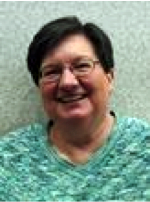 Regina has experience in researching within state courthouses, libraries and archives. She has traveled to and conducted genealogy research in Ireland and has become an expert in locating real estate records. She has published a 500 page family history book on her mother’s family line and is currently working on a second volume, this one focusing on her father’s lineage. Preparing to Publish Your Book: Tips and Tricks for the Writer Does publishing your family history book seem like a daunting task? This talk will help you over come your fears of writing and publishing your family book. Discussion will cover how to generate ideas for your book, finding your target audience, setting up the book, finding publishing companies and how to use Microsoft Word to add special features to your book. |

